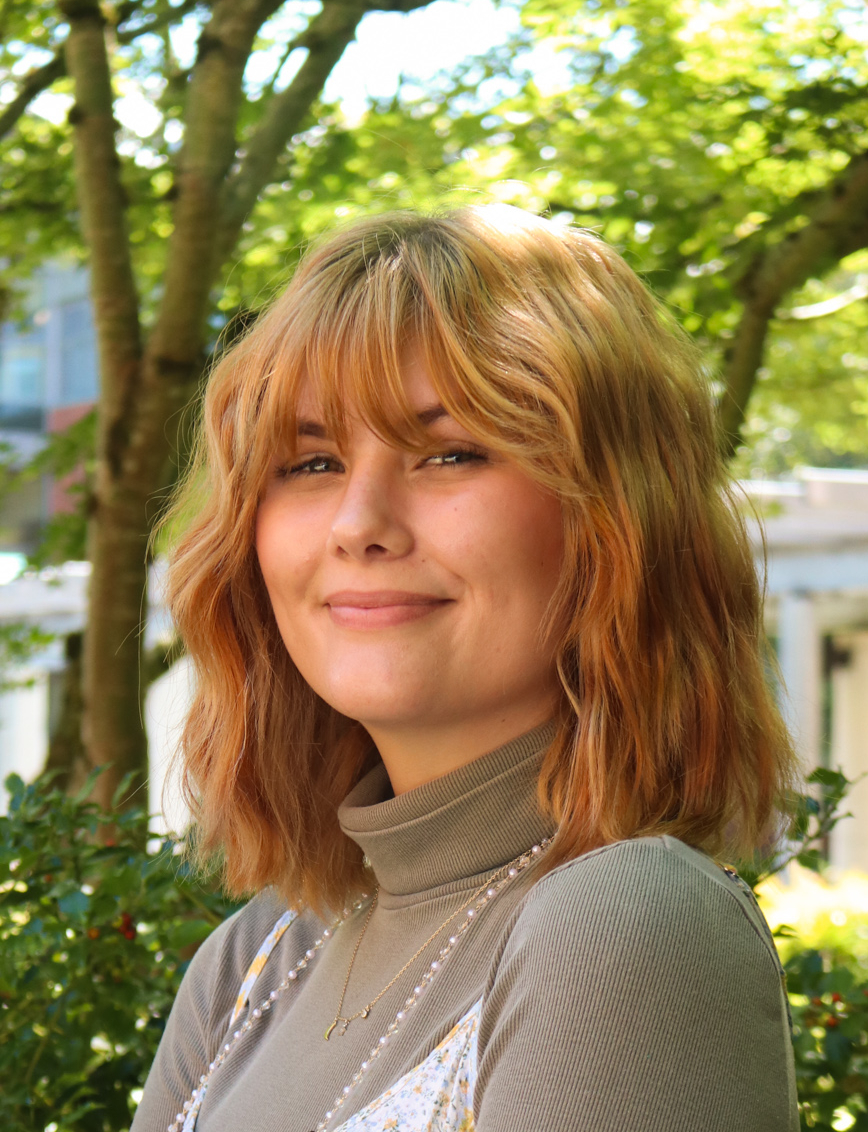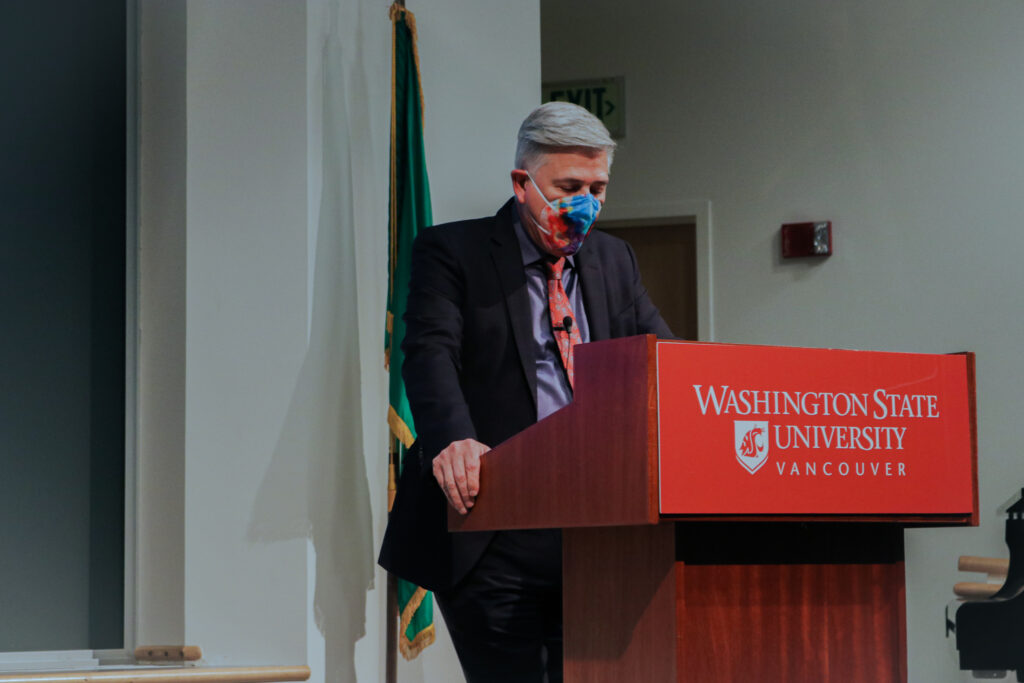The COVID-19 pandemic has hit WSU Vancouver with uncertainty, and making plans for the university’s future proves to be a difficult task. Chancellor Mel Netzhammer acknowledged this unpredictability, and announced a five-year strategic plan to address crucial aspects of campus operations.
Netzhammer met with WSU faculty and administrators to share WSU Vancouver’s new five-year strategic plan during the State of the Campus Address on Feb. 2. The new strategic plan looks beyond COVID-19 and focuses on five goals: research, student success, infrastructure for resilience and growth, equity, diversity and inclusion and community engagement.
Placing particular importance on research in the next five years, the university plans to expand its network with external agencies and different campuses, all to support research programs, scholarships and other creative activities. During his address, Netzhammer emphasized the new research positions would strive to establish equity through heightened support for faculty who are women and People of Color.
“To ensure equitable recruitment, retention and promotion of faculty, staff and administrators across demographic groups [this goal includes] increasing representation of employees from underrepresented race and ethnicities – African American, Native American, Latin X and Native Hawaiian Pacific Islander employees to better reflect the diversity of the student body,” Netzhammer said.
The university’s success is defined by students, thus, it is only fitting that the five-year strategic plan implements strategies for undergraduates and graduates to reach their goals. Netzhammer said encouraging career preparedness, diversifying the student population and increasing graduation rates are key to supporting the student body. More specifically, he stressed the importance of caring for students by encouraging the WSU Vancouver community to support their basic needs by improving access to food, housing, transportation, healthcare, childcare and educational technology.
As students returned to campus after a long hiatus of online classes, WSU Vancouver is now concentrating on new infrastructure and degree attainment for the region. The establishment of the Sciences Building, expected to open by 2023, will build upon the administration’s goals by increasing the physical capacity of the campus, while also meeting research needs. Additionally, WSU Vancouver is planning to optimize degree programs in response to student demand, and will work to prepare graduates for the current job market.
Netzhammer also said equity, diversity and inclusion will continue to be a priority within WSU Vancouver. The 2022 fall semester will promote recruitment from programs such as Talent Search, a program that provides students from marginalized backgrounds access to grant-funded college access opportunities. The plan also seeks to promote diversity among its employees, and foster a campus climate that encourages belonging and safety for all.
Another part of the strategic plan promoted cultivating more community engagement for WSU Vancouver. The university plans to network and grow relationships with businesses, nonprofits, government agencies, tribes, local activists and WSU alumni. Elaborating more on the plan, Netzhammer said these connections will increase learning opportunities for campus partners to facilitate paid internships for students.
“Every college does internships differently, but we can be coordinated as we work with our community partners to decrease some of the obstacles that they face when they want to work with us. I think we can be better at helping them understand some of the basic rules about interns, that [they are] not free labor, even though people are interested in using interns as free labor. There’s a lot of work that we can do to facilitate these partnerships,” said Netzhammer.
Although the strategic plan has many ambitious goals, Netzhammer addressed current issues such as declining enrollment, a decreased budget and the continued presence of COVID-19 in the community. While setting up new programs that seek to increase student retention, createing a new budget model to preserve university jobs and monitoring COVID-19 state guidelines, the chancellor attempted to ease the growing concerns within WSU Vancouver.
“Please remember that these strategies are always a work in progress; we update them, we eliminate the ones that are not achieving their objectives. Some of the proposed strategies are not fully formed, and we will be working on those over the next few weeks,” Netzhammer said.
To leave feedback, ask questions or find more information regarding the university’s strategic plan, visit vancouver.wsu.edu/strategic-plan.

Bethanie is a senior studying environmental and ecosystem science at WSU Vancouver.
